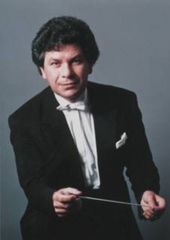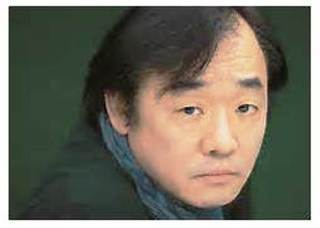|
Back
Two Rare Appearances New York
David Geffen Hall, Lincoln Center
12/08/2016 - & December 9, 10, 2016
Leos Janácek: Z mrtveho dom: Overture
Ludwig van Beethoven: Piano Concerto No. 3 in C Minor, Opus 37
Antonín Dvorák: Symphony No. 6 in D Major, Opus 60
Kun-Woo Paik (Pianist)
New York Philharmonic Orchestra, Jirí Bělohlávek (Conductor)

J. Bělohlávek (© Courtesy of the Artist)
Rare indeed are the artists of the New York Philharmonic this week.
Conductor Jirí Bělohlávek has had to cut down on his concert schedule this last year due to a fight with that devil cancer. And while his bushy hair and robust stature has given way to baldness and a slimmer figure, he was suitably energetic on the podium.
The case of pianist Kun-Woo Paik is more difficult to explain. He is lauded throughout Europe, Asia and America. The Seoul-born artist is a graduate of Juilliard, a student of legendary Rosina Lhévinne and Wilhelm Kempff, and a recording artist of note. Yet his only appearance with the NY Phil was outside of America, when Zubin Mehta chose him to play in Italy on a guest tour.
In other words, as writer Gail Wein described him in Playbill, Kun-Woo Paik is “the most eminent pianist you’ve probably never heard play in New York.”
He has however, collaborated with conductor Bělohlávek on many occasions, so one expected an exceptional performance of Beethoven’s Third Piano Concerto last night.

Paik K.-W. (© Ipo.co.il)
Mr. Paik was indeed exceptional. He is a tough strong pianist. His opening scales weren’t played, they roared out of the piano, a signet of the coming show, which put the Phil decidedly into the shade.
For the rest of the performance, Mr. Paik commanded the music with a fierce militarism. Which meant that the first movement was less friendly than forceful. Where Beethoven’s first two concertos were Classical disinterested essays, here he played the Hero. And Mr. Paik struck that heroic stature from the start through the cadenza. He was perhaps not flexible, the lighter measures seemed parenthetical, but he retained the Beethoven gallantry.
The middle movement was not “likeable”, it didn’t possess that amiable loveability of Mozart. Beethoven and Paik were solemn to the point of stodginess. Yet so dynamic was his playing in the finale, so sonorous and–again–authoritative, that one can only wonder why he hasn’t made more appearances here.
If conductor Bělohlávek was overshadowed by Kun-Woo Paik in the Concerto, he was fully in control for that most curious and beguiling Janácek Overture to The House of the Dead. Like Prokofiev’s Gambler another operatic setting of Dostoyevsky, the Janácek opera is not a story at all. It’s a series of episodes, going back and forth through the shadows of Dostoyevsky’s years in prison. It is difficult to hear (unless one knows Czech), but must be fascinating to watch.
And unless one knew beforehand, or had read the program notes, it couldn’t have been easy listening to such a starkly titled opera overture with its polkas and waltzes, its shrieking violin notes (played with Sheryl Staples’ usual expertise), its sudden changes of mood. But this was Janácek at his most unique, and this was Czech conductor Bělohlávek , who knew so well the nuances of the Russofile Czech composer and his variegated moods.
Alas, that same mastery didn’t quite translate to the Dvorák Sixth Symphony. (Once known, for cryptic reasons as either the First or Second symphony.) This was not truly the Czech Dvorák–except for the bouncy dance-like third movement, easily the best of the whole work. But the pastoral quality, the mood of Brahms’ Second (also in the key of D Major) is in every measure of the first two movements.
For unknown reasons, the Phil simply lacked accuracy throughout the work. Not the individual instrumental fluffs (which were not infrequent) but a lassitude, a lack of energy or color. Difficult to describe why such a great orchestra should appear anything less than great this opening night. Hopefully tonight and tomorrow, Mr. Paik’s own drive will inject them into the quiet passion so merited in this enchanting symphony.
Harry Rolnick
|